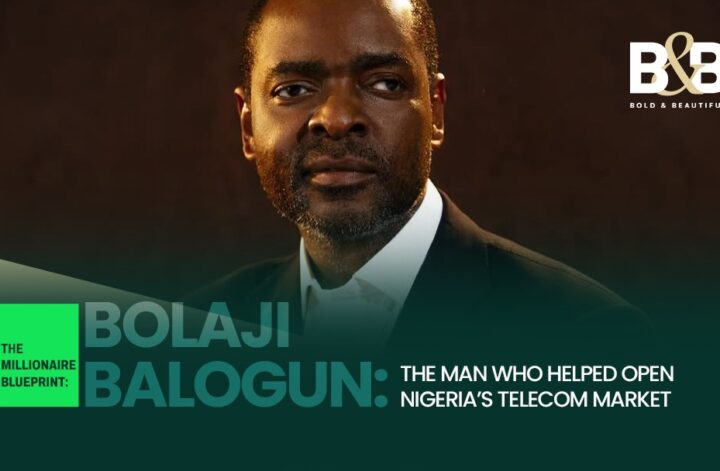To those who know the combinations, numbers tell stories, and among the very few people who really know how to use the strategic combination of those numbers to define success and create wealth is Bolaji Balogun, one of the most influential figures shaping Nigeria’s economic future. As the Chief Executive Officer of Chapel Hill Denham, he is more than just a banker—he is a visionary who has spent decades orchestrating some of the country’s most significant financial transactions, driving investments, and transforming industries.
But behind the towering reputation and multi-billion-dollar deals lies a story of ambition, resilience, and an unwavering belief in Nigeria’s potential.

A Legacy of Finance, A Mind of His Own
Born into a family with deep banking roots, Bolaji could have easily walked a well-paved path. His father, Otunba Subomi Balogun, was a pioneering figure in Nigeria’s banking industry, but instead of simply inheriting a legacy, Bolaji sought to build his own. He immersed himself in finance and investment banking, refining his skills in a space where sharp minds and bold decisions define success.

While Bolaji is known today for his investment banking acumen, his strategic mind has left a mark beyond finance. In the early 2000s, when Nigeria was on the verge of a telecommunications revolution, he played a pivotal role in launching Econet Wireless Nigeria (now Airtel Nigeria).
His early career saw him at the heart of First City Merchant Bank (now FCMB), where he honed his expertise in investment banking and corporate finance. But Bolaji wasn’t one to remain in the shadows. He had bigger ambitions—ones that would later redefine Nigeria’s financial sector.
At a time when the idea of mobile phones was still a luxury for most Nigerians, Bolaji was instrumental in securing a $285 million GSM licence, opening the doors for private investment in the industry. Later, he spearheaded one of Nigeria’s most high-profile deals—the $1.67 billion sale of Econet to Celtel. This wasn’t just another business transaction; it was a moment that reshaped Nigeria’s telecommunications landscape, proving that the country was ready for big investments.
Building Chapel Hill Denham: More Than Just an Investment Bank
After his success in telecoms, Bolaji turned his full attention back to investment banking, and in 2005, he founded Chapel Hill Denham. But this wasn’t just another financial institution—it was built with a purpose: to drive Nigeria’s economic transformation by investing in industries that truly matter.
Under his leadership, Chapel Hill Denham has grown into one of Nigeria’s most respected investment firms, focusing on infrastructure, healthcare, energy, and financial inclusion. The firm manages the Nigeria Infrastructure Debt Fund (NIDF), which has provided billions in financing for projects that power cities, build roads, and improve healthcare access.
Unlike traditional investment banks fixated on short-term gains, Bolaji has positioned Chapel Hill Denham as a firm that invests in the future—not just for investors, but for Nigeria itself.
A Passion for Entrepreneurship and Inclusive Growth

Beyond high-profile deals, Bolaji is deeply committed to entrepreneurship and sustainable development. As the Vice Chairman of Endeavor Nigeria, he works closely with high-impact entrepreneurs, helping them scale their businesses and create jobs. His influence extends to the boardroom of Unilever Nigeria Plc, where he serves as Chairman, guiding one of the country’s largest multinational firms.
But what truly sets Bolaji apart is his belief in building systems that outlast individuals. He has consistently championed policies that promote gender inclusion in finance, believing that empowering women in leadership is not just an ethical choice but a smart economic decision.
The Legacy of a Nation Builder
Bolaji Balogun is not just another investment banker—he is a nation builder in every sense of the word. His work has touched industries, created jobs, and driven investments that will shape Nigeria’s economy for generations.
In a world where success is often measured by individual wealth, Bolaji’s impact is different. His legacy will not be in personal achievements alone, but in the industries he has strengthened, the entrepreneurs he has empowered, and the Nigeria he continues to build—one bold investment at a time.





